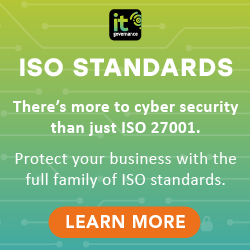A resume objective allows the writer to introduce his or her personal goals and how those goals may relate to the type of position he or she is seeking. Objectives have been favored among resume writers for many years; however, some individuals are beginning to omit the career objective completely. The executive resume summary is now being used as a replacement for the objective. This type of summary has grown in popularity among people in different industries and is being used for a variety of work-related positions. The executive summary contains useful information that can be used to effectively communicate the qualities of the candidate and what he or she can do for the company.
In most cases, the resume objective simply states what the candidate is seeking in a job position and how he or she can advance with the company. The objective statement and the candidate may commonly be perceived as one-dimensional and self-centered. Unlike the executive resume summary, the objective is not used as a description of the candidate’s accomplishments and will not help the recruiter determine what the candidate can contribute to the hiring company.
An executive summary briefly lists some of the professional achievements that have been accomplished by the candidate. The focus is on establishing a professional identity for the candidate by demonstrating his or her value and potential. Descriptive verbs and phrases are often used in the summary to grab the attention of the reader and demonstrate the candidate’s significance in previous professional relationships. A well-written, personalized summary is essential as it represents the candidate and gives the recruiter the ability to form an initial impression.
The length of an executive summary may vary depending on the amount of experience and achievements the candidate possesses. Summaries may range from two sentences to a fully structured paragraph containing four or more sentences. It is important to provide the reader with an overview of qualifications and achievements instead of any detailed descriptions that will be provided in sections throughout the resume. The summary may include formal education and a few descriptive sentences of prior work responsibilities. Although the executive summary may be considered an outline of the resume, it should provide the reader with precise details that are not vague or unnecessary.
The details listed in the summary may be tailored to appeal to a particular job position or company. For example, a candidate that includes his or her ability to speak a foreign language may be attractive to the recruiting company that conducts business internationally. The ability to speak another language is a desirable trait among many types of industries and may be an ability that sets the candidate apart from others.
Once the executive summary has been written, it may be helpful to have another person review it and offer any constructive criticism that can enhance the resume. He or she may be able to determine the effectiveness of the summary from another point of view. Individuals that find it difficult to create a professional resume summary on their own may find it helpful to utilize services that provide assistance with resume writing.
While conducting her own executive job search Elizabeth Shelton conducted research on executive resumes. To be competitive and land a job fast she recommends job seekers contact a resume expert. To get expert help on your resume, she recommends one of the top executive resume firmswww.100kcareermarketing.com her research found at executive resume firmswww.100kcareermarketing.com


